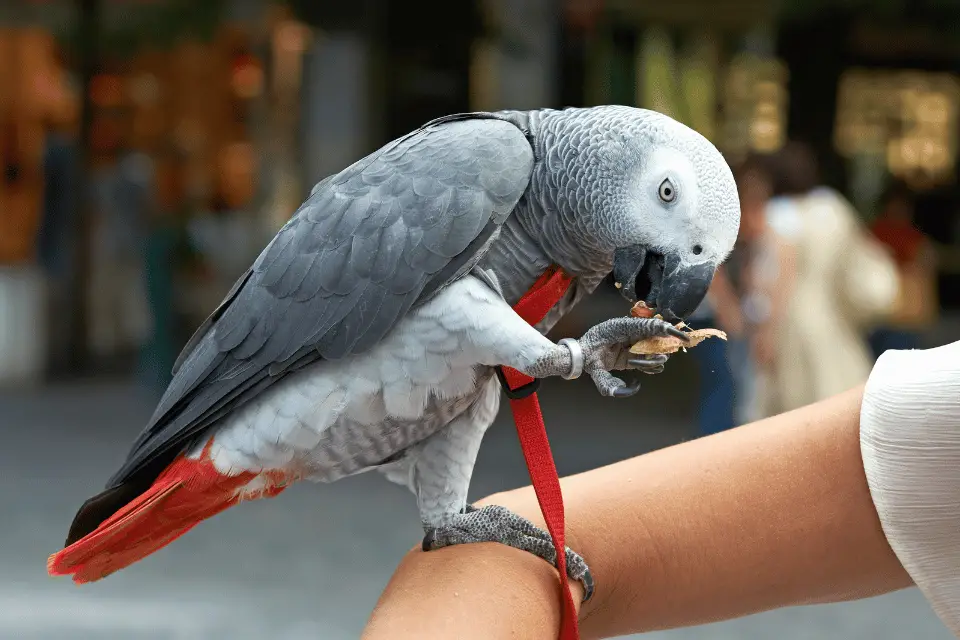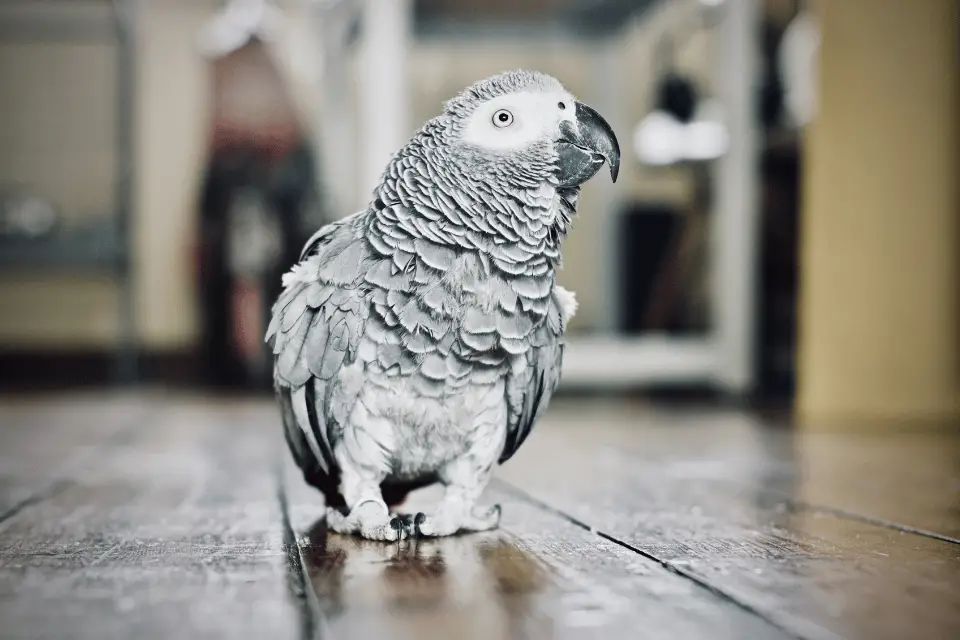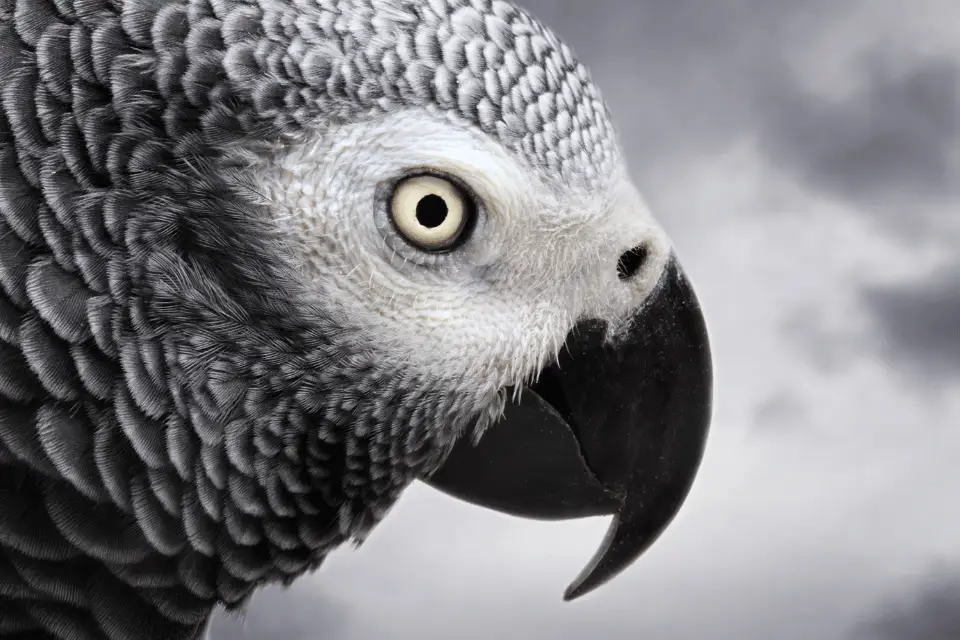From Feisty to Friendly: How to Train and Socialize Your African Grey Parrot
When it comes to the world of pet birds, African Greys stand out as one of the most intelligent and beautiful species available. These parrots are often seen as the epitome of avian intelligence, being known for their incredible capacity to mimic human speech and their problem-solving abilities. However, with such intellect comes emotional complexity, which can sometimes manifest as aggression.

Do African Grey Parrots Like to be Held?
Petting and holding birds is not always as straightforward as with our canine and feline companions. Much like humans, birds, particularly African Grey Parrots, have unique personalities and comfort levels when it comes to physical interaction. It's crucial to understand and respect their boundaries, ensuring they're comfortable with the level of contact.
A common myth that circulates around these parrots is that they are not very affectionate. However, the reality is that they can form deep, emotional bonds with their owners, and many do enjoy being petted and held - but on their terms. Earning an African Grey's trust can be a slow and steady process, but the reward of seeing them warm up to you is worth every patient moment.
Don't rush them into any physical interaction - gradual and positive reinforcement is key. Always approach with gentle, confident movements, and allow them to initiate contact. Over time, this builds a foundation of trust, helping them to become more comfortable with being held.
Why is My African Grey Being Aggressive?
Having an aggressive African Grey can be distressing for many owners. You might be wondering, 'why is my usually gentle and intelligent bird suddenly displaying hostility?' Understanding the reasons behind this sudden change in behavior is the first step towards rectifying the situation.
African Grey Parrots are emotionally sensitive birds. Changes in their environment, a new person in the house, an uncomfortable cage, or even a change in your daily routine can cause stress, leading to aggressive behavior. Often, these birds use aggression as a form of communication, expressing discomfort or fear.
Territorial instincts can also cause aggressive behavior. Your pet parrot views its cage as its safe space. Intrusions into this space, even by the most well-meaning owners, can be perceived as a threat, leading to defensive, aggressive actions.
Remember, your pet isn't trying to harm you out of malice. They are simply responding to what they perceive as a threat or uncomfortable situation. A deeper understanding of these issues is covered in this article.
What to Do if an African Grey Bites You?
An African Grey's bite is no laughing matter. Their powerful beaks can cause significant pain and even injury. However, biting is often their way of communicating discomfort, fear, or annoyance.
If you're bitten, reacting in anger or fear can actually exacerbate the situation. Instead, remain calm and withdraw slowly. Try to understand why the bite occurred by paying attention to the circumstances and your bird's body language before the incident.
Consistent training can greatly reduce the likelihood of biting. Reward positive behavior and discourage negative behavior with calm, assertive actions. In the meantime, using protective gloves during interaction can prevent injuries while you are still in the process of training your parrot.
Are African Grey Parrots Good Family Pets?
With their high intelligence and emotional sensitivity, African Grey Parrots make remarkable pets for the right family. Their impressive cognitive abilities and speech mimicry can provide endless entertainment and companionship.
However, these birds are not low-maintenance pets. They require ample mental stimulation, social interaction, and consistent training. Their sensitivity means they thrive in stable environments and can become distressed by chaotic households.
Families considering an African Grey as a pet should be prepared for a long-term commitment. These birds can live up to 60 years, and their intellectual and emotional needs continue throughout their lifetime.
As for children, these parrots can get along well with older, respectful children who understand the need for gentle handling. As for other pets, careful introduction and supervision are necessary to ensure safety for all.
In Conclusion
African Grey Parrots are as complex as they are captivating. These intelligent birds can bring much joy to a household, but it's crucial to remember their needs and instincts. Yes, they can be aggressive and territorial, but with understanding, patience, and proper training, these behaviors can be managed.
These intelligent birds are not just pets, but life companions. Their unique emotional depth and cognitive abilities can lead to a fulfilling and remarkable bond, unlike any other pet relationship.
Take your journey with your African Grey one step at a time. As you navigate through the ups and downs, remember that each step brings you closer to a deeper understanding and a stronger bond with your feathered friend.
For those curious about their African Grey Parrot's gender, you might find this article interesting.
Disclaimer: This article is intended for informational purposes only. It's not meant to be a substitute for professional veterinary advice, diagnosis, or treatment. Always seek the advice of your veterinarian or other qualified health providers with any questions you may have regarding your pet's health.
Sources



Comments